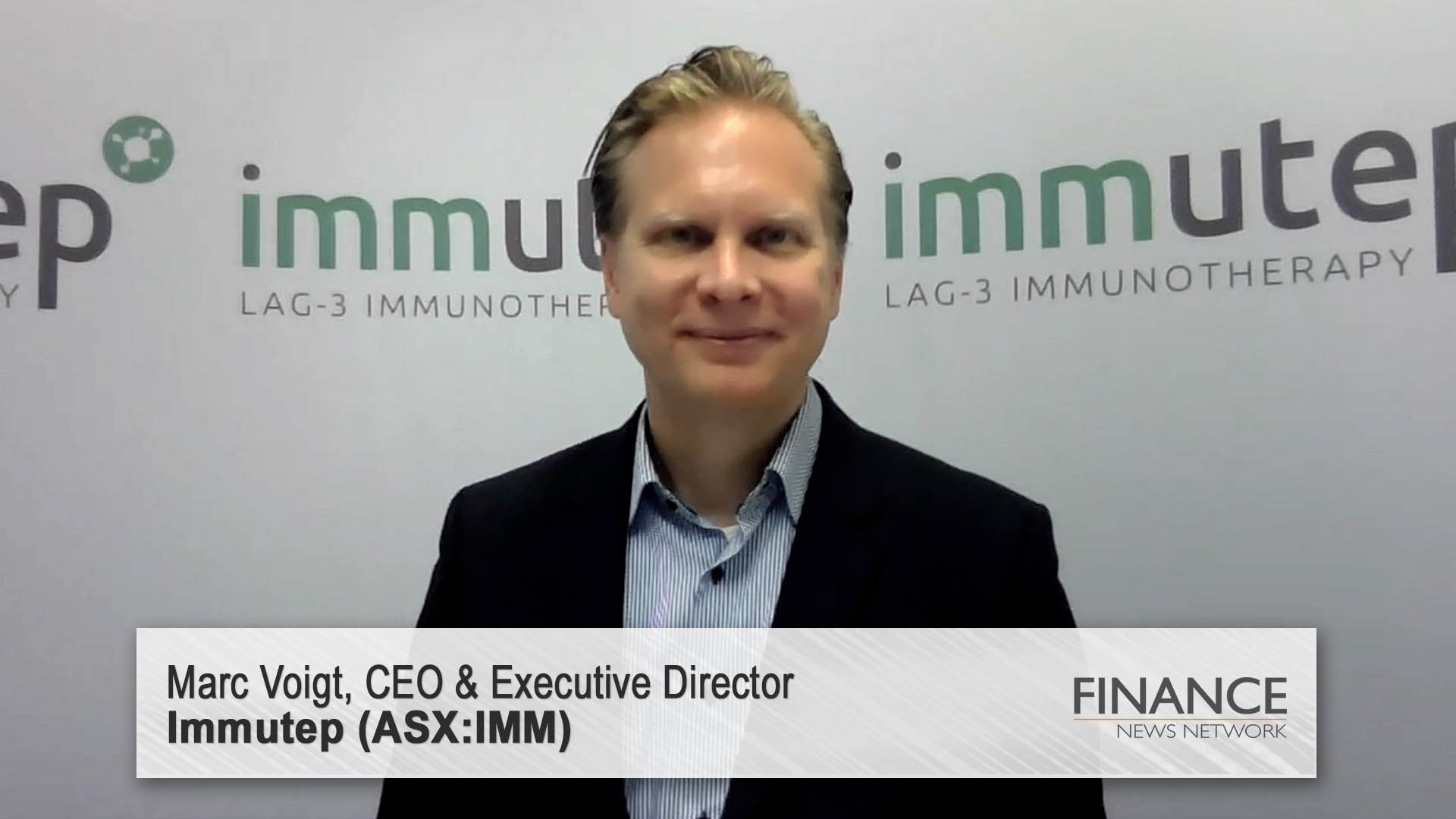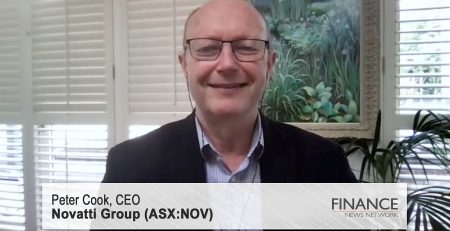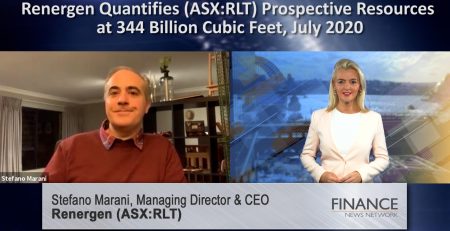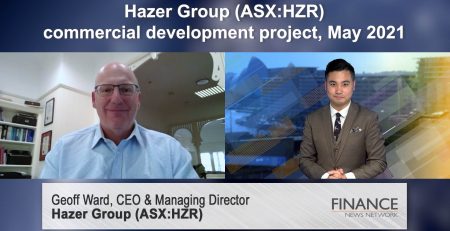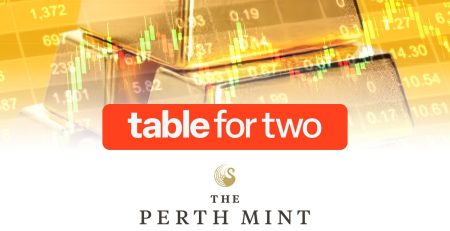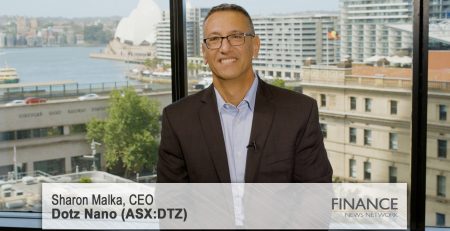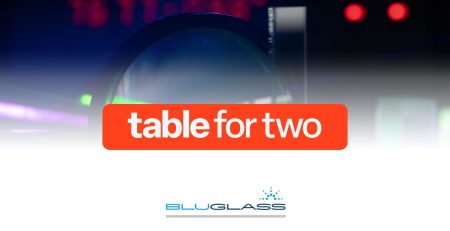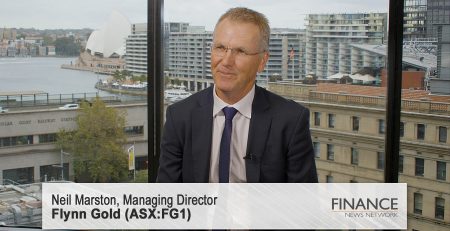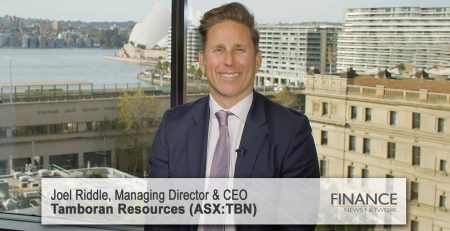Immutep (ASX:IMM) announces positive results in head and neck cancer treatment
Immutep Limited (ASX:IMM) CEO and Executive Director Marc Voigt discusses the company's latest results in head and neck cancer.
Peter Milios: I'm Peter Milios from the Finance News Network, and today we're talking with Immutep (ASX:IMM). Immutep is trading under the ASX code "IMM" and has a market capitalisation of approximately $487m. Immutep is a clinical-stage biotechnology company at the forefront of developing novel LAG-3 immunotherapy for cancer and autoimmune diseases. Joining us today is CEO Marc Voigt. Marc, welcome back to the network.
Marc Voigt: Thank you, Peter.
Peter Milios: So, Marc, first up, congratulations on joining the ASX 300, which takes effect on 23 September.
Marc Voigt: Yeah, thank you so much, Peter. Indeed, that's a good step and we are honoured to join that group. And of course it's a reflection of our growth in the LAG-3 space, and we hope to continue with that growth.
Peter Milios: And you've been busy, Marc. You recently announced new positive efficacy data for efti in head and neck cancer. Can you explain the significance of this?
Marc Voigt: Yeah. First of all, this is from a trial called TACTI-003, where we have actually been publishing results already, end of June and then in July. It's a study which is divided in two cohorts, Cohort A and Cohort B, Cohort A being randomised in patients who have a reaction to Keytruda. So we combine our drug eftilagimod together with Keytruda. And now we had a presentation at ESMO, which is a very significant conference in Europe, took place in Barcelona. And there we had a so-called late-breaking oral presentation, which is a very high-ranking presentation among, I believe, the top 1 per cent. And the data we have been showing there is practically a follow-up from the data end of June. And since end of June — and the market didn't like the data end of June, to be quite frank — there have been some improvements actually and some very good points. And those have been presented among the data now in Barcelona. This is, for instance, one response more in the CPS greater or equal to 20 group. So, in a specific group of patients, we saw one overall response more. So the gap between Keytruda and efti plus Keytruda is widening overall, and especially in that group.
We also see very good duration of response. So, the tumour shrinkage over time is also highly encouraging, with more than 17.5 months. So, we maintain the very high quality of the response you typically see with Keytruda. And this argument becomes especially relevant if you look at other combinations. For instance, Keytruda plus chemotherapy delivers a duration of response only around six, seven months. So, in other combinations, very often you have a high response rate, but at the expense with a compromise on the durability of the response. Not so here. We maintain the tumour shrinkage over a long period of time, much longer than you see typically in other indications. And, in addition to that, you can also measure the efti-specific immune activation. So, eftilagimod is obviously cancer immunotherapy, and we can measure the immune response in patients in a statistically significant way. And all of that has been presented. So, I believe good updates. However, the final stop will be overall survival, which is expected in the next year.
Peter Milios: Marc, can you elaborate on the factors that contributed to the 31 per cent overall response rate in one of your patient groups who were treated with the combination of efti and Keytruda?
Marc Voigt: Yeah. Those are the patients with a CPS high score. At the day of the data cut-off… At a certain point of time, you need to decide this is when the data has been analysed, and the primary analysis had the 11 March cutoff. So, the 31 per cent is to be seen and to be compared with the 18.5 per cent of Keytruda. So, it's 1.7-fold increase, which is quite good. However, after the data cut-off, there was another response in the efti plus Keytruda group, meaning we have now more than 34 per cent response rate in that group. So, it's almost doubling the response rate you see with Keytruda alone. So, that's quite good, especially in light of the durability of response. And this is hopefully then translating into overall survival.
The problematic group we saw in that trial overall is Keytruda group with 1-19 CPS, which has been exceeding all historic expectations, with a response rate above 30 per cent. Normally you would have been expecting there 14.5, in any case, below 20 per cent response rate. But this can happen in smaller randomised clinical trials, especially as we saw imbalances of the trial arms looking at different prognostic factors for the patients, which have been more favourable in the Keytruda arm compared to the efti arm.
Peter Milios: And Marc, how is the favourable safety profile of this combination therapy being monitored across the different patient cohorts?
Marc Voigt: This is monitored according to all normal standards, and indeed our safety profile is quite good. There are efti-specific side effects. These are injection-site reactions, which you're only seeing in the efti group, not in the Keytruda group, but this is very manageable. It's called Grade 1. So, it's a relatively mild onset, not problematic for the patients. And the safety here is a key point, as in head and neck cancer first-line, you see a number of different combinations applying and different combination strategies including, excluding chemotherapy. We could combine eftilagimod also with other drugs. It's key, of course, to be relatively safe so that you can actually have those combinations.
Peter Milios: And, Marc, could you provide an update on the TACTI-004 lung cancer trial?
Marc Voigt: Yeah. This is actually the key value driver of the company. It's in first-line non-small cell lung cancer. It's a Phase III clinical trial. So, unlike, for instance, TACTI-003 with, in total, 170 patients, here we talk about 750 patients, and we are amidst all operational preparations for the study start, choice of sites, choice of countries. Certainly we will have more than 150 hospitals around the globe working on the trial. The study start, we said by end of Q1 next year. We are working within the timeframe, of course. Also, AIPAC-003 plays a role here, but we are super excited to get this trial underway to become a Phase III company in the most important market in oncology.
Peter Milios: And, going back to the announcement, with overall survival data expected to come out in 2025, could you discuss the potential regulatory pathways being considered to bring this therapy to market? And then, what are the specific milestones that are anticipated in the coming year?
Marc Voigt: Yeah. First of all, a number of milestones. Let me answer your last question first. A number of milestones till end of this year in terms of data, and then, of course, also throughout 2025. Besides the study start of TACTI-004, we have INSIGHT-003, INSIGHT-005. So, two other studies, with another trial in soft tissue sarcoma. Of course, there is more data to be expected from Cohort B from TACTI-003. So, there will be a number of data points prior to end of this year and in the next year. So that's, I believe, quite good and a transformative step in terms of the study start.
Now, overall survival to be expected in head and neck cancer next year. We will discuss with the agencies, especially with the FDA, regarding the path forward. And there we have two cohorts, Cohort A, Cohort B. So, based on the data collected, we will discuss the path forward, and I believe there will be a path forward, especially Cohort B I think has been discussed already widely. We had an ESMO plenary, very rare, in July 11, 12. And of course that data and updates will be discussed and also presented to the public.
Peter Milios: Marc, thank you so much for your time.
Marc Voigt: Thank you.
Ends
Copyright 2024 – Finance News Network
Source: Finance News Network

